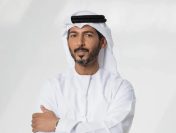As we brave the challenges of 2018, indicated to be among one of the tougher years on all counts, here is predicting what the rest of the year has in store. What follows are my hopes, thoughts and fears for the communications function over the coming months. But before I begin, I should iterate that I take absolutely no credit for any of them being right, and I’m not liable if I’m wildly off the mark either.
More Political Uncertainty: If you think 2017 was tough when it came to political leadership, or lack thereof, you haven’t seen anything yet. We’ve had a taste of 2018 and what to expect in the region with the US decision to recognize Jerusalem as Israel’s capital. This will be the year when US foreign policy shifts 180 degrees, on all sorts of issues. And others will behave accordingly. Other groups will need to step into the breach, and that means either the business community or the public. Expect more proactive lobbying and public affairs, and more reactive shifts in corporate social responsibility strategies.
More Online Regulation: 2017 may have been a great year for the likes of Facebook and Google — both registered record-high share prices in 2017 — but it may also become a Pyrrhic victory for them, and other social media firms. Calls are growing in the US for broadcast regulations on political advertising to include social media following alleged Russian meddling in the 2016 Presidential elections, while European regulators are exploring how they can force the likes of Facebook, Google and Twitter to take more action on extremist content online – this will include fines. Even in the region, there’s a concerted effort to update laws to better regulate topics such as influencer marketing – UAE’s decision to require a license for influencers is indicative of this. In the rest of year too, expect social media platforms, and the content hosted on them, to be more closely regulated.
More Online Crises: This may not be that surprising (yes, I can see you scratching your head and wondering why I’ve put this in). Rather, I’m talking cyber-espionage, hacking and whistle-blowing. Last year we witnessed political disputes which were initiated by website hacks, a sustained series of leaks from email accounts which had been broken into, the hijacking of social media accounts, and more whistleblowing leaks. This year will only see even more illegal activity online. We could see online hackers shift from politics to brand-jacking, targeting corporates for money. As an industry, we’re going to have to do a much better job of understanding the technical aspects of the online world.
The Agency Model Breaks/Evolves: This isn’t an issue which has gotten nearly enough attention over the past couple of years. Agencies aren’t making much, if any, money these days. Costs are high, talent is scarce, and clients are cutting budgets or shifting money into other areas. Publicly-listed PR agencies are looking at single-digit growth globally, and geographies which offered more, the likes of China and the Middle East, have also slowed down. With more competition both within the industry and without the industry, especially from the advertising and management consultancy sector, will 2018 be the year when agencies look to change how they approach client servicing, or is it the year when clients look to alternatives. There’s already a growing trend in the Middle East to embed agency people into the organization, essentially turning them into contracted roles, especially in government and semi-government organizations. Time will tell, but it’s clear to me that we need a healthy agency model for us to sustain the industry.
Gender Equality: In many ways, 2017 was a defining year for gender equality. Unsurprisingly, these campaigns passed over much of the Middle East, with little discussion of sexual discrimination. With others leading by example and not just words, will we see industry promote gender equality? Some agencies have already begun, Memac Ogilvy naming Patou Nuytemans as CEO being one example.
Merit-Based Hiring: We’re facing a hiring crisis in cities such as Abu Dhabi and Doha when it comes to government entities and communications roles; there’s not enough experienced nationals to fill these roles, and expats are often only offered one-year contracts, which just isn’t good enough to attract the right talent. Both the private and the public sectors need to work together to understand how to create a long-term plan that encourages Arab nationals to join the industry/function. Governments also need to appreciate the importance of diversity in their communications function, especially when communicating with a diverse range of stakeholders. We’ve got to move away from quotas filling roles with certain groups, and think differently to ensure that we have the right people in the right roles.
Promoting Arab Talent: We’re facing shortage of Arabic language natives in the industry. This has been exacerbated by challenges in bringing Syrians into the industry (Egyptians, Jordanians, Palestinians and Syrians make up the vast majority of talent in the industry who can read, speak and write Arabic fluently). With the Eastern Gulf facing its own issues due to a focus on English-language, the PR industry has to address the Arab talent question. It needs to do more with universities across the region and prioritize promoting communications and public relations as a viable career option for Arab nationals. The industry also needs more Arab national role models who are willing to step up and act as role models for others.
Better Government Engagement: The past couple of years have seen a transformation in governments communicating with their stakeholders. Government leaders are online, on social media, and are actively pushing out communication. This year is transformational for two countries in the Gulf, namely Saudi Arabia and the UAE, with the introduction of tax. Now that we have a proper taxation system in place, there will be more questions from expats especially as to where the money is being used. More transparency and engagement from the region’s governments will go a long way to building trust with the public.




